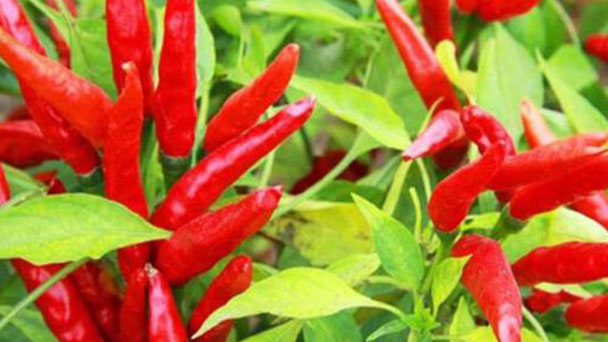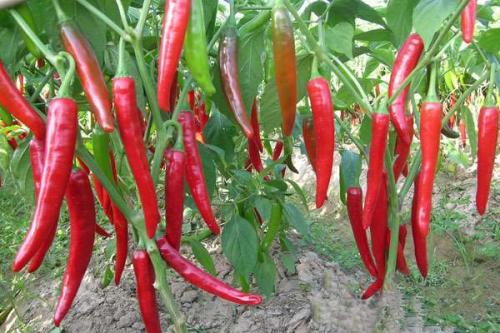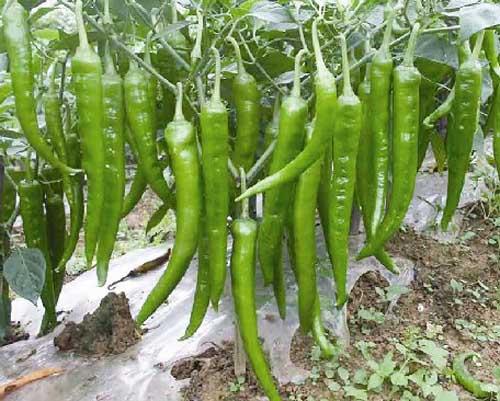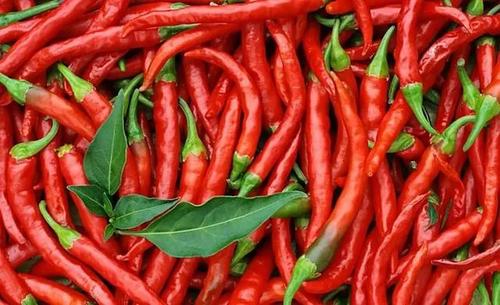How to grow and care for pepper
Written by Maggie
Jan 28 2021

Pepper is very common in life. Many people like to eat it. But do you know how to care for peppers when we grow? Today, we will talk about how to grow and care for pepper.

Pepper care for flowers falling
Pepper's falling flowers are related to the curing method. When we care for pepper, too much water will cause the root system of Pepper to be damaged and the flowers will start to fall. When Pepper's soil solidifies, the root system can't breathe and it can cause the flowers to drop. If too much fertilizer is applied, the root system will be burned and the flowers will fall off. Without enough light, Pepper can't photosynthesize and its flowers fall off. The following are pepper care for flowers falling.
Pepper in the curing period, appears the phenomenon of flowers, may be caused by too much water. Pepper has a high need for water before flowering. When we care for pepper, we need to control water during flowering. If you water pepper too much during curing, it will affect the normal growth of pepper. When too much water is present during flowering and the root system is damaged, the flowers fall off.
Pepper's flowers falling could also be the result of soil fertility or poor air permeability. Pepper does not tolerate water logging and is suitable for growing in loose, fertile, breathable and well-drained soil. When we care for pepper, soil hardening or insufficient fertility will affect the growth of the root system of Pepper. Later Pepper will grow poorly and flowers will fall off.
Pepper flowers falling during growth, probably due to too much fertilizer. When we care for Pepper in the flowering period, the need for fertilizer is not high, and should be appropriate fertilizer. Fertilizing pepper properly during flowering can burn the root system of the plant. When the root system is damaged, it can't absorb nutrients properly, causing the flowers to fall off in large numbers.
Pepper needs plenty of light during flowering and fruiting to promote the growth of flowers and fruits. When we care for pepper, adequate light can prolong the flowering period and ensure the quality and quantity of flowers. Pepper will not grow well in a cool environment without sufficient sunlight. Its growth will deteriorate and its flowers will not open or fall off gradually.

Pepper care for rotten fruits
Pepper rotten fruit is due to improper watering, water caused root rot, every watering to water thoroughly. When fertilizing pepper, avoid too high a concentration and burn the root. Choose loose and fertile soil for Pepper to ensure the air permeability of the soil and turn over the soil in time. Control the growth temperature of Pepper between 15 ~ 25℃, do a good job of proper temperature protection. The following are pepper care for rotten fruits.
Water care
During the Pepper fruit season, improper watering of water, causing root rot, Pepper will appear as a root rot phenomenon. Pepper is not tolerant of waterlogging, every watering to water thoroughly, wait until the soil becomes dry after watering. When we care for the Pepper in the fruit season, the soil can be kept moist, which can effectively promote the growth of the fruit.
Fertilization care
Adequate nutrient supplement can effectively improve the yield of Pepper fruit, and the growth form of fruit will be more full. When we care for the pepper in the fruit period, organic fertilizer liquid can be applied once every half a month. Fertilizer should be diluted and used to avoid too high concentration, which will cause root burning and rot of Pepper fruit.
Soil care
Pepper likes loose, fertile soil to ensure that the soil permeability can be added to the soil silt. If the curing time is too long, the soil will be salinated and the root of Pepper will not be able to absorb it, so the rotten fruit will appear. When we care for pepper, pepper needs to be turned over for soil treatment, rainy season, more rain, and do a good job of soil drainage work.
Temperature care
Pepper growth temperature in 15 ~ 25℃, the temperature is appropriate, can promote the continuous growth of Pepper. The temperature rises, the environment is dry, you can sprinkle water in the air and the leaf surface, and do a good job of cooling and moisturizing. When we care for peppers in winter, it is necessary to do a good job of warming the Pepper to avoid frostbite caused by low temperatures.

Latest Updated
- Benefits of Bugleweed - 7 Science-backed Health Benefits
- Bugleweed Dangers & Side Effects - Is It Poisonous?
- How to Plant Evergreen Trees - What You Should Know
- When to Plant Evergreens - Grow Guide for Evergreen Trees
- 12 Wonderful Evergreen Shrubs for Your Garden
- 12 Popular Evergreen Plants with Pictures for Beginners
- When And How To Prune A Lilac Bush Like a Pro
- How to Grow & Care for Lilac Vine (Hardenbergia Violacea)
- Japanese Lilac Tree (Syringa Reticulata) Care & Propagation Guide
- Shumard Oak Pros and Cons - What to Know
Popular Articles
- Winter maintenance of Antirrhinum Majus
- How to Grow Terminalia Mantaly Tree
- How to Grow and Care for Crossostephium Chinense
- How to grow Antirrhinum Majus in spring
- Peristeria Elata (Dove Orchid) Profile: Info & Care Guide
- Underwatered Snake Plant (Sansevieria Trifasciata) - Signs And How To Fix
- How to Care for Brazilian Jasmine Plant (Mandevilla Sanderi)
- How to Grow & Care for Graptopetalum Purple Delight in Summer
- Rosa Chinensis (China Rose): Plant Growing & Care Tips
- How to Care for Baby Sun Rose (Aptenia Cordifolia)